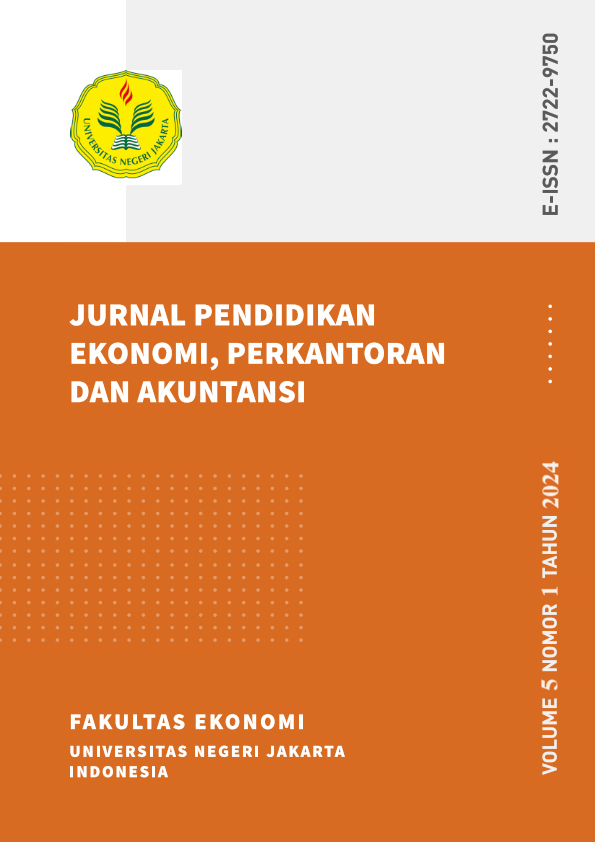RASCH MODEL ON ECONOMICS MATHEMATICS BELIEF SCALE
DOI:
https://doi.org/10.21009/jpepa.0501.24Keywords:
Economics mathematics belief scale, Rasch model, Measurement in educationAbstract
This study aims to apply the Rasch Model to the Economics Mathematics Belief Scale (EMBS) instrument involving 144 student respondents from the Faculty of Economics. Instrument development was carried out by compiling items, testing, and analyzing using the Rasch Model with the WINSTEP application to identify unidimentionality, item fit, person fit, distribution on item/person map, and description of the EMB dimensions, namely self-confidence, belief in the mathematics learning process, and supportive social context during the mathematics learning process in economics. The results of the analysis show that this instrument has a high item separation reliability, which is 0.98 for item reliability and 0.88 for person reliability. In the item fit analysis, there are 5 items included in the unfit category based on the MNSQ and PT-Measure Correlation criteria. Descriptive analysis shows that 73% of students have confidence in their own abilities, 78% of students have confidence in the learning process in learning economic mathematics, and 81% of students have confidence in the role of lecturers and the application of mathematics in everyday life. This study contributes to developing an instrument to measure economics mathematics belief (EMB). Further development of this EMBS instrument is needed for better instrument results.









